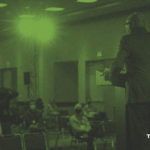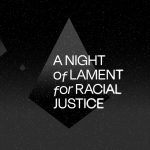Malcolm X’s evolution from a strident black nationalist to a global-minded coalition builder is broadly appreciated today, but it’s not as well known that Martin Luther King Jr.’s philosophy also evolved over the course of his ministry. King’s vision for American society advanced well beyond the elementary principle espoused in his 1963 March on Washington speech that all Americans should be “judged not by the color of their skin but the content of their character.”
I’m a pastor who focuses on the gospel’s implications for racial reconciliation, and I have come to take Dr. King’s evolved thinking seriously, especially on the economics of race. Those of us who endeavor to extend and apply King’s legacy should carefully weigh how his thinking changed over time and where he ended up.
Let’s consider his development by reviewing two milestone messages—one a few years prior to his major legislative victories in 1964 and 1965, and the other the last speech he delivered to the Southern Christian Leadership Conference (SCLC) a year prior to his death.
From Desegregation to Integration
In December 1962, a year before the historic march, King spoke at a church conference in Nashville. His message, “The Ethical Demands for Integration,” proclaimed that while it was necessary to focus on eliminating segregation, only positive integration would see “the welcomed participation of Negroes into the total range of human activities.” He elaborated:
A desegregated society that is not integrated . . . leads to physical proximity without spiritual affinity. It gives us a society where men are physically desegregated and spiritually segregated, where elbows are together and hearts are apart. It gives us [physical] togetherness and spiritual apartness. It leaves us with a stagnant equality of sameness rather than a constructive equality of oneness.
King’s sentiment aligns magnificently with the gospel’s vision of a new humanity in Ephesians 2:14–17, achieved by Jesus’s death on the cross, that destroys “racial” dividing walls in the church. King’s understanding of this new humanity implies a love that is about far more than simply relieving the social discomforts of desegregation. This love achieves something decidedly more glorious: it forms oneness where division once thrived. For King, the only way to redeem racial injustice in the world was to build a new societal structure that provides for a shared and open relational experience, which could only be achieved by integration, not mere desegregation.
King’s views on integration were anchored in a rich vision of the divine-human relationship. He believed integration is the necessary outcome of God’s equal love for all. Since “human worth lies in relatedness to God,” integration is the only social order, King reasoned, that reflects this true equality before God. Any differentiation along racial or ethnic lines ultimately denies the oneness of the human family, thereby tacitly preserving segregation. And since King acknowledged that true integration isn’t achievable by laws but only “by willing hearts,” his conviction was that integration is the unique province of the spiritual.
Power of Love
Five years later, after his great desegregation legislative victories of 1964 and 1965, King’s language in his 1967 speech at the SCLC national convention was more practical and provocative. He opened with a diatribe against American society:
Of the good things in life, the Negro has approximately one-half those of whites. Of bad things in life, he has twice. . . . Half of all Negroes live in substandard housing . . . [and yet] there are twice as many unemployed . . . infant mortality is double that of whites and there are twice as many Negroes dying in Vietnam in proportion to their size in the population.
But King wasn’t just reporting demographic statistics; his rhetoric had morphed and to some ears had radicalized. To overcome the “cultural homicide” experienced by Blacks, King said, “the Negro must rise up with affirmation of his own Olympic manhood. Any movement for the Negro’s freedom that overlooks this necessity is only waiting to be buried.”
He would further couch the freedom struggle in terms of power, saying bluntly: “The problem of transforming the ghetto is a problem of power . . . it is the strength required to bring about social, political, and economic change.” Then he placed this bold blast in the dynamics of love, saying that “power at its best is love implementing the demands of justice, and justice at its best is power correcting everything that stands against love.”
King’s speech goes on to outline policies for a guaranteed national income and a universal housing program. Whatever one thinks about the efficacy of his policy proposals, King clearly came to see that ambitions for integration that ignored economic inequalities were self-defeating and definitively unloving. This seems to echo the practice of the church in Acts 2:42–45 and 4:32, which describe a unity we could call gospel integration, or the term often associated with King, “the beloved community.” King’s direction, in principle at least, mirrors Paul’s sentiment in 2 Corinthians 8:13 that charitable sacrifice leading to equality flows into a relationship-forming reciprocity.
Our takeaway from King’s development is twofold. First, pursuing racial reconciliation requires confronting economic inequalities, along with the cultural realities that led to them. Second, we must see the theological urgency in the relationship between redemptive love and restorative action. As we pursue racial reconciliation in gospel community today, we should be prepared to talk biblically about the economics of racial reconciliation as a feature of Christian discipleship. By God’s grace, these conversations may not only bring to life elements of King’s much-celebrated dream, but also may lead to an authentically New Testament experience in more of our churches.
Is there enough evidence for us to believe the Gospels?
 In an age of faith deconstruction and skepticism about the Bible’s authority, it’s common to hear claims that the Gospels are unreliable propaganda. And if the Gospels are shown to be historically unreliable, the whole foundation of Christianity begins to crumble.
In an age of faith deconstruction and skepticism about the Bible’s authority, it’s common to hear claims that the Gospels are unreliable propaganda. And if the Gospels are shown to be historically unreliable, the whole foundation of Christianity begins to crumble.



































